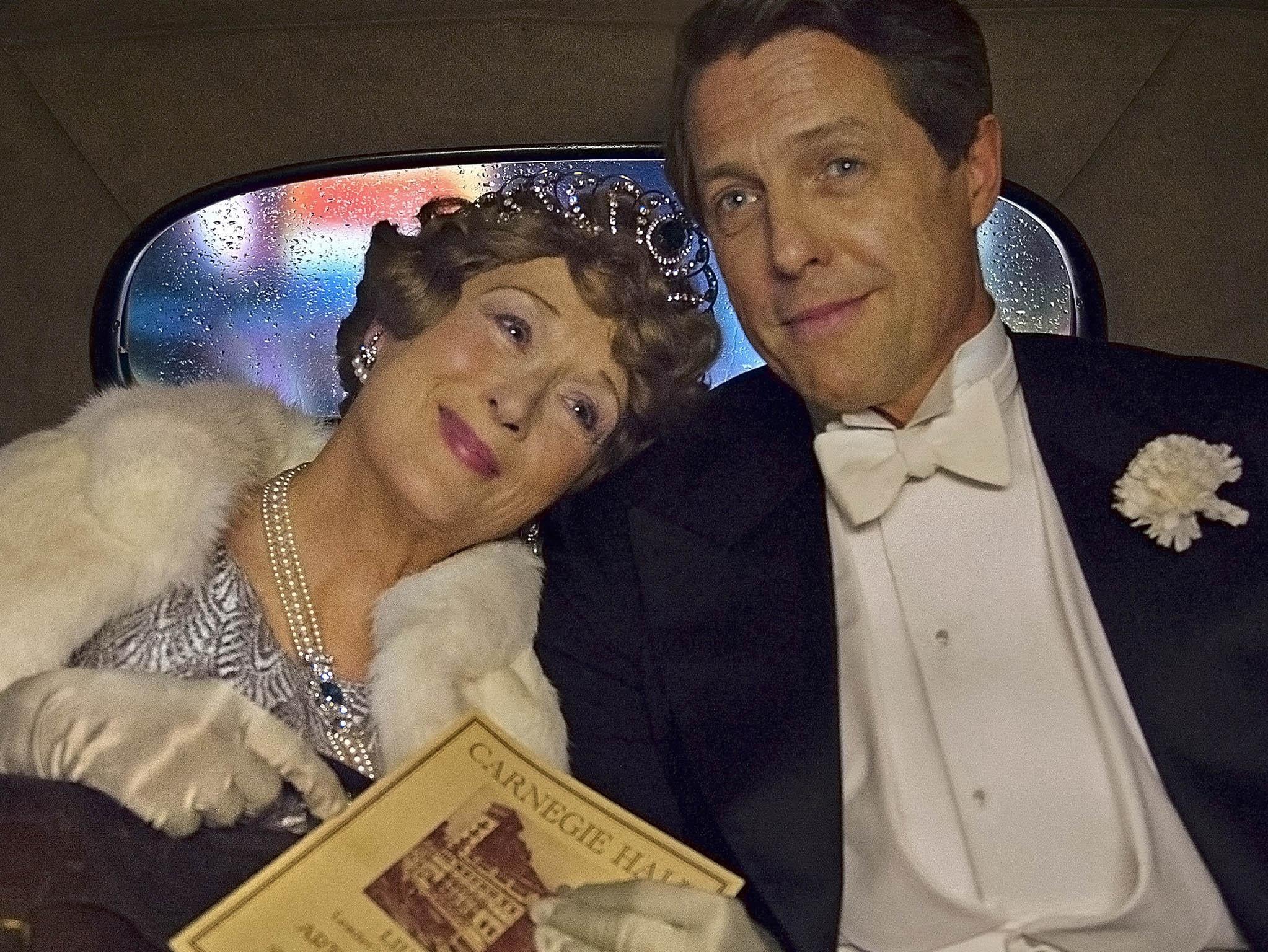Florence Foster Jenkins review: Stephen Frears' biopic is both sly and affecting
Though Stephen Frears directs this almost as if it were a 1940s screwball comedy, there is a real poignancy here

Your support helps us to tell the story
From reproductive rights to climate change to Big Tech, The Independent is on the ground when the story is developing. Whether it's investigating the financials of Elon Musk's pro-Trump PAC or producing our latest documentary, 'The A Word', which shines a light on the American women fighting for reproductive rights, we know how important it is to parse out the facts from the messaging.
At such a critical moment in US history, we need reporters on the ground. Your donation allows us to keep sending journalists to speak to both sides of the story.
The Independent is trusted by Americans across the entire political spectrum. And unlike many other quality news outlets, we choose not to lock Americans out of our reporting and analysis with paywalls. We believe quality journalism should be available to everyone, paid for by those who can afford it.
Your support makes all the difference.Stephen Frears, 110 mins, starring: Meryl Streep, Hugh Grant, Simon Helberg, Rebecca Ferguson, Nina Arianda
Florence Foster Jenkins (Meryl Streep), the heroine of Stephen Frears’ new film, lives for music. She is a New York socialite who dreams one day of singing opera in Carnegie Hall. The hitch is that her voice is hideous: flat, strident and screeching. Frears’ biopic is both sly and affecting.
Florence (who was a real-life figure) is both an object of comic ridicule and, ultimately, of immense pathos. She is grotesque and heroic, narcissistic and strangely selfless. With its extravagant costume design and attention to period detail, the film may have the air of one of those cosy, middlebrow comedy-dramas aimed at older audiences but it is delving into some very raw areas.
As first seen here, Florence cuts an entirely ridiculous figure. She is dressed as a winged angel and being held aloft on stage by long-suffering technicians at the Verdi Club, which she founded and where she sings to raise money for good causes. Her “husband,” mediocre British actor St. Clair Bayfield (Hugh Grant), acts as her manager and flatterer in chief.
This isn’t the only recent film in which Frears has examined the vexed relationship between an imperious and eccentric older woman and a middle-aged man. Some of the comic exchanges here are in a similar vein to those between Judi Dench’s Philomena Lee and Steve Coogan’s journalist in Philomena (2013.) Grant gives one of his best screen performances as St. Clair Bayfield.
The charm that made him such a star at the time of Four Weddings And A Funeral is still there but it is fading along with his looks. His character combines seediness and opportunism with a dogged loyalty to his wife and employer. He lives a bohemian life with his girlfriend Kathleen (Rebecca Ferguson) but is always on best behaviour when in Florence’s presence. He relies on her financially but his tenderness toward her isn’t feigned.
Streep is hardly a natural comic actress but she retains that uncanny, chameleon-like ability to transform herself from role to role. Last year, she played a skinny, Joan Jett-like would-be rock star in Ricki And The Flash. Here, far plumper, she is more in dowager duchess/Lady Bracknell mode - and she makes a very good job of singing very badly.
The film is set in 1944, in the latter part of its subject’s life. Fears continually wrong-foots us. The more we learn about Florence’s traumatic back story, the more sympathetic she seems. She is hard-working; determined to do her bit to cheer up the armed forces, and surprisingly solicitous of those close to her - who are invariably the ones accepting her cheques. At one stage, she even does the washing up for her pianist, the perennially grinning and very nervous Cosme McMoon (Simon Helberg.) Nicholas Martin’s screenplay hints that she is more self-aware than she lets on.
Another more fictionalised version of Florence’s story was told very well in Xavier Giannoli’s Marguerite, in which the action was relocated to France just after the First World War. Giannoli made clear that his subject’s dedication to her art transcended her lack of ability. In Frears’ film, the farcical elements are more accentuated. He directs Florence Foster Jenkins almost as if this is a 1940s screwball comedy. Even so, there is real poignancy here - a sense of Florence’s heroism in the face of all the mockers and scoffers.
Join our commenting forum
Join thought-provoking conversations, follow other Independent readers and see their replies
Comments